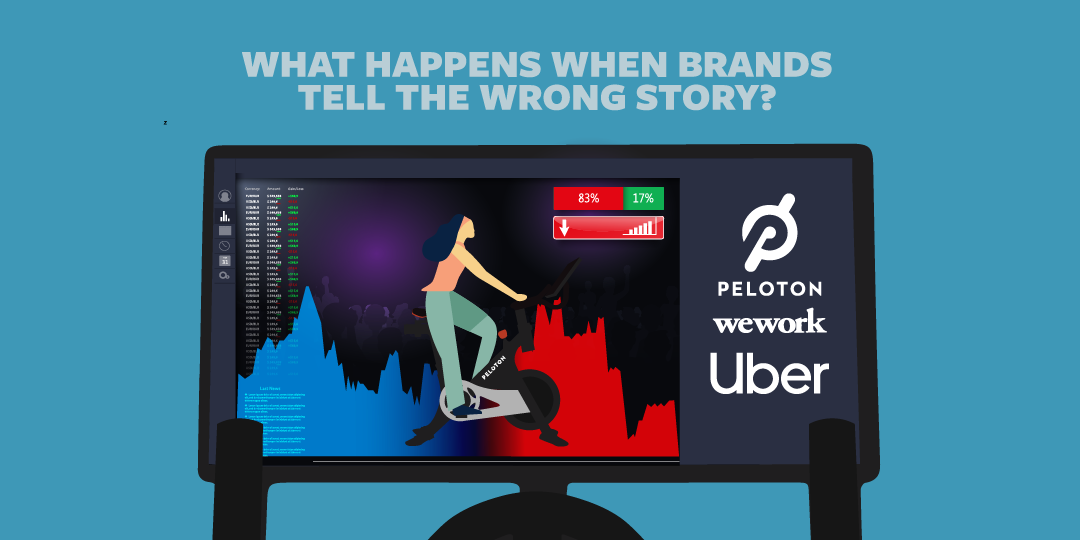Peloton’s IPO opened down 7 percent and closed 11 percent below their $29 IPO price, making it the third-worst performance for an IPO that raised more than $1 billion since the financial crisis. All of that being said, I still have tremendous faith because this brand is truly awesome. I have a theory about why they made what many are calling a clumsy entrance onto the public market and what they can do to power through it. And my theory applies to all of the brands who are getting ahead of themselves as they raise capital, but not profit or brand equity. So WeWork and Uber, this is for you too.
I believe the thing that’s going to protect them from all of the other companies that are coming for them is the story they are not telling.
I don’t believe Peloton was ready to go public. The brand had a ton of good press, much about creating a category (like UBER), but also a ton of bad press about customer service, the mistakes they made with music rights and how that affected their loyal customer base.
Just recently, Nordic Track, a well-known brand of high-quality home fitness equipment, released an iFit technology platform and its Global Workouts. This includes live classes you can do on-demand, and “traveling” workouts that take you on a virtual journey to exotic locations. It even offers the option of letting the class and the instructor remotely control your settings, adjusting the incline, decline, and speed or resistance automatically. The bad news for Peloton, they’re about half the price.
And Nordic Track is not the only one. There are a bunch of other lower-cost brands out there making it easier to work out in your home with “live classes” like Mirror, which looks like a normal mirror, but it streams a broad range of live and on-demand fitness classes. Even SoulCycle, famous for bringing spin to the masses and having a very passionate following, is launching an at-home bike with digital classes.
So back to the story they are not telling. I can’t help but wonder if they’re talking about the equipment (which is great, but there is other great equipment) is missing the real connection point. I love Peloton because of the instructors and the community. I convinced 4 friends to buy bikes and one to buy a tread. Maybe getting stronger means tapping into what really matters to the people that love them and not only love to advocate for them but can’t seem to help themselves. Personally, I might buy a product from “a technology company that meshes the physical and digital worlds to create a completely new, immersive, and connected fitness experience”, but I’m not buying in. And there is a big distinction.
The best part of Peloton is the instructors that push you and empower you all from the tablet screen in your house. The ones I’d never get access to at a local gym. I always start my Mondays with Robin Arzon because she makes me feel like a badass and like I can do anything. And I need to go into my week like that. That’s a strong connection and a compelling promise.
And the other people at my office who have bikes come in every day quoting their favorite instructors and talking about their favorite classes. Tapping into that passion is critical for the long-term value of any brand.
The marketing team at Peloton (and Uber and WeWork) might not agree, but the great news is, this passion is quantifiable. Our I-Factor® platform can uncover and quantify the most compelling data and insights to deeply connect brands with their audience in as little as 4 weeks. And turn fickle consumers into long-term advocates.
Peloton, I really do love you. And want you to be around for a long long time. Let’s talk.

